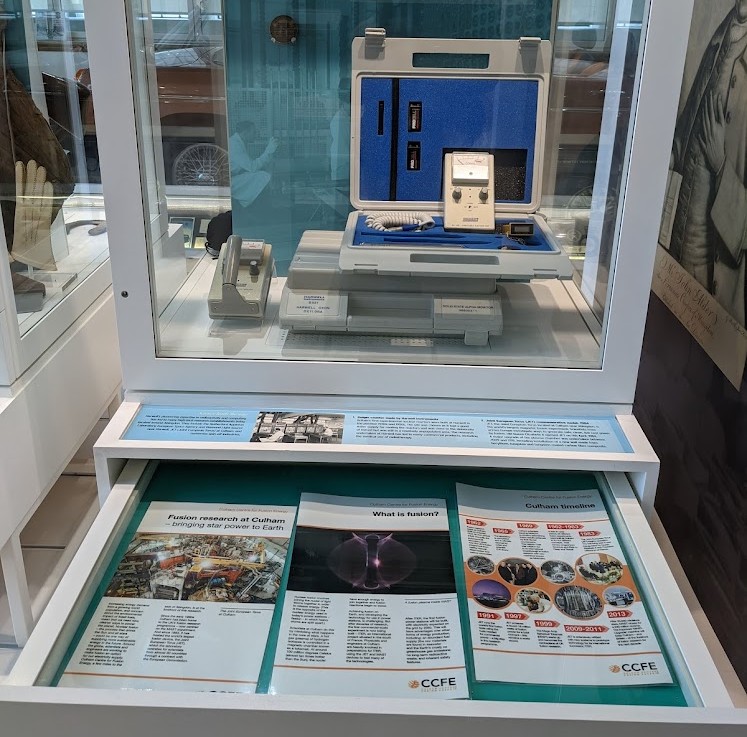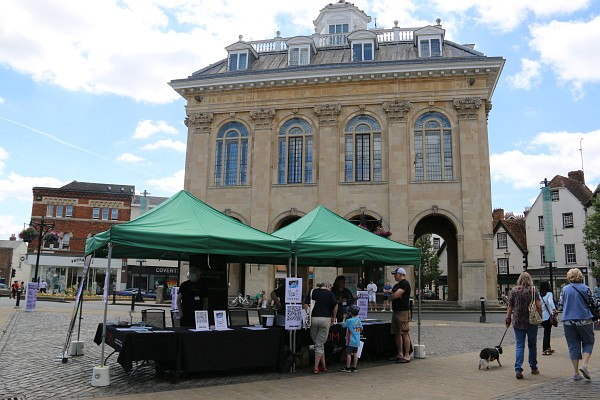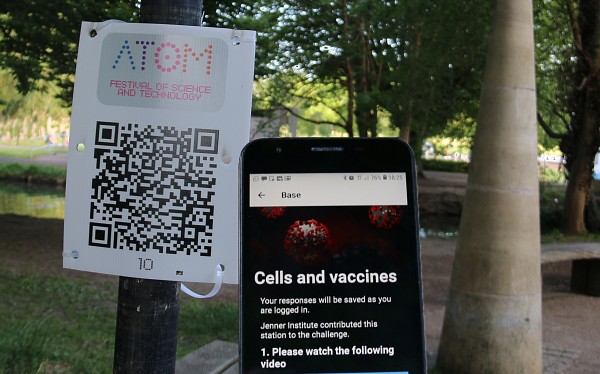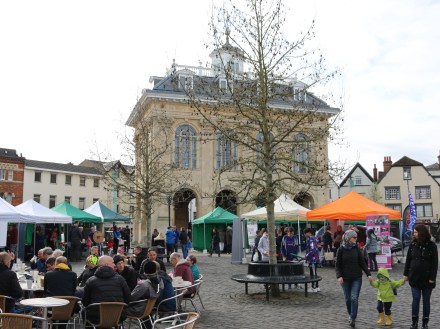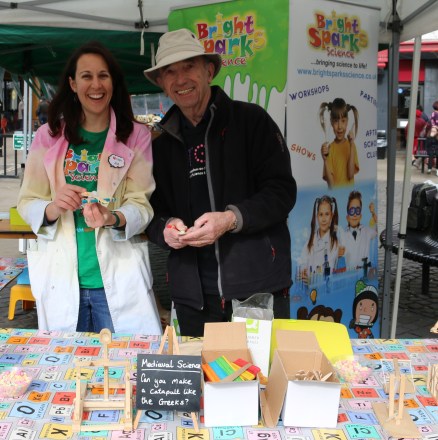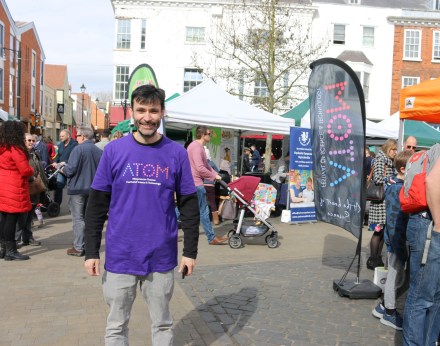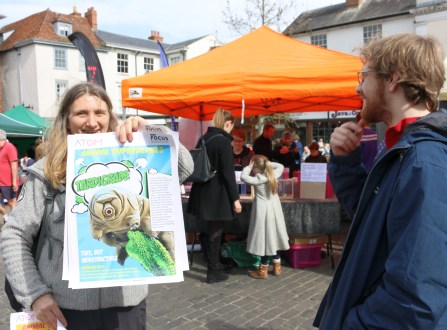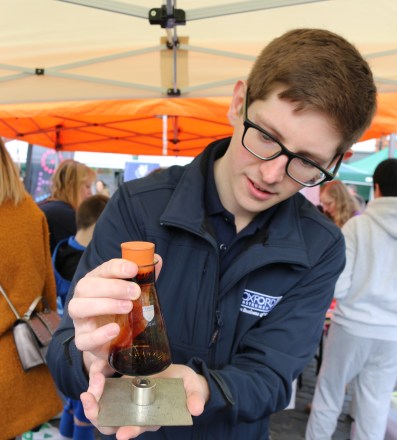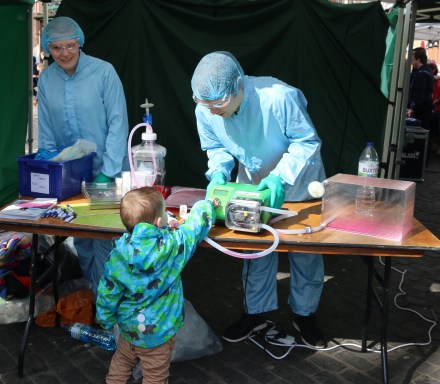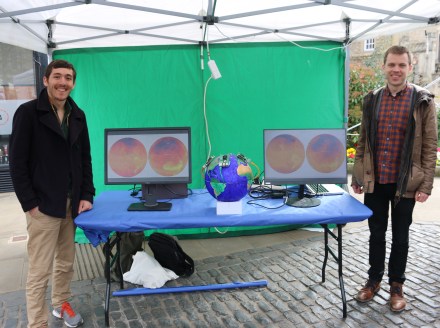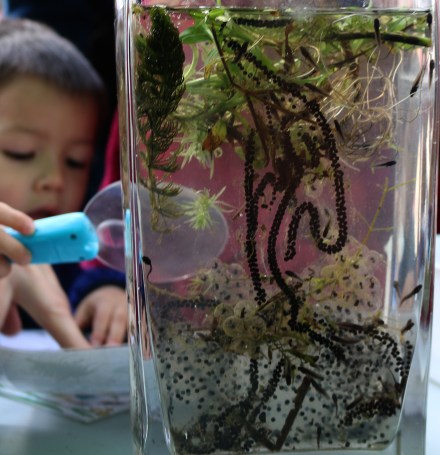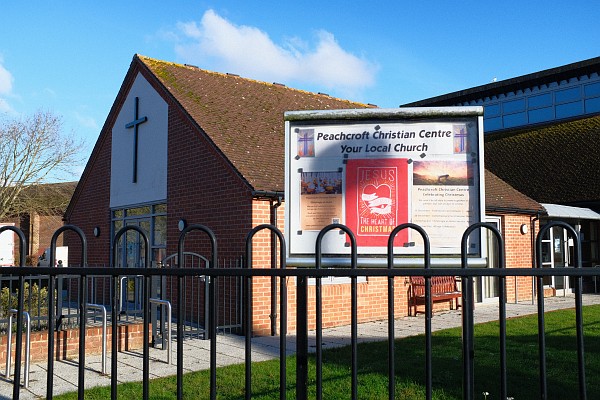
Peachcroft Christian Centre used to have the smallest church building in Abingdon. Like churches in medieval times they added an extension that more than doubled the size of the church.

Peachcroft Christian Centre normally hold a Christmas Day lunch at Peachcroft for anyone in Abingdon who is on their own. Unfortunately, this year, because of Covid, they cannot hold the lunch.
Instead, they will be delivering gift bags, packed full of treats (edible and non-edible) on Christmas Day and wishing people a happy Christmas. The only criteria is that people should be on their own on Christmas Day and live in Abingdon.
If people know someone who would welcome a visit and a gift, please contact events@peachcroftcc.org or 07379 469311.
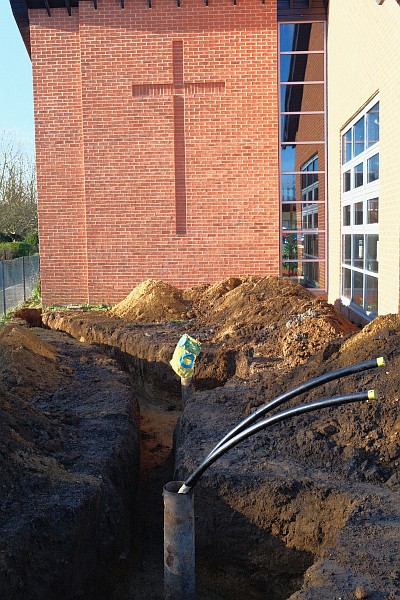
After building the bigger church most of their ground was used up. They are using that remaining patch to generate energy. A channel has been dug and some pipes are sticking out. An information boards explains that they are installing a Ground Source Heat Pump. From what I can gather they have drilled two boreholes 150 meters into the ground. Each borehole has two pipes. Very cold water will be pumped down one pipe (with anti-freeze to stop it freezing) and it will return up the other pipe warmed by the earth – having gained heat energy. With every unit of electrical energy used to power the pump they get back 4 units as heat energy. That heat energy can then be used to heat the building and for hot water.
P.S Churches were back worshipping this Sunday after ther November restrictions and some lit the 2nd Advent Candle. Many use a booking system and spaced seats and face masks. They listen to pre-recorded hymns as singing is not allowed.
